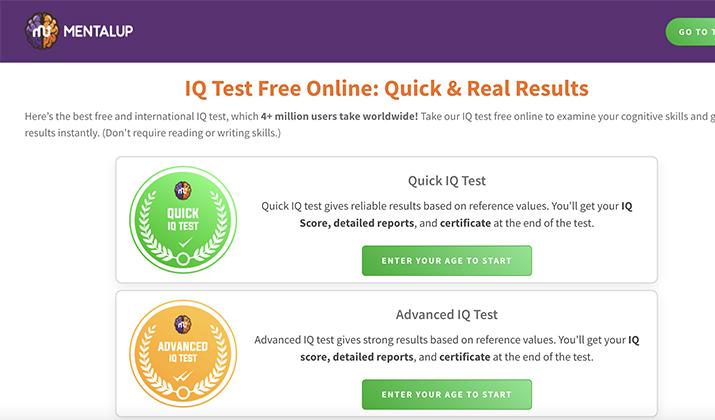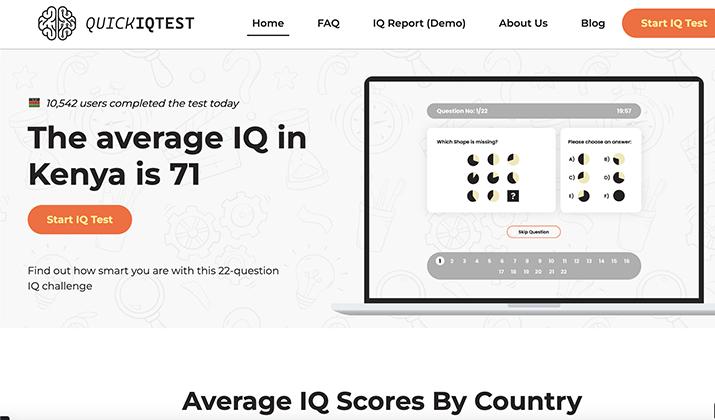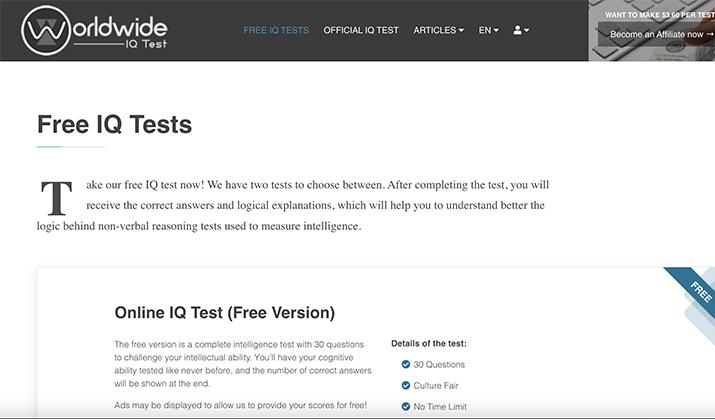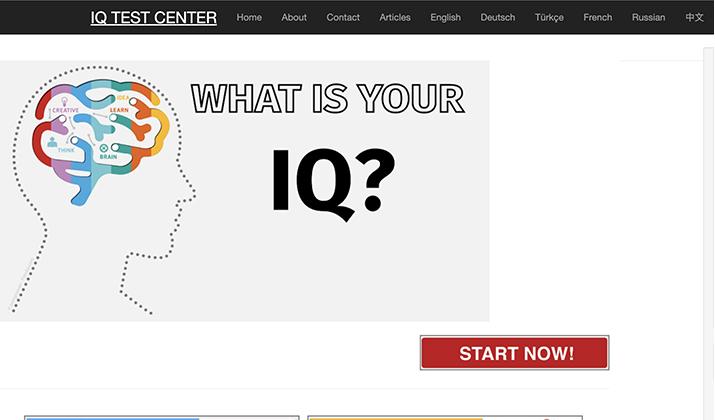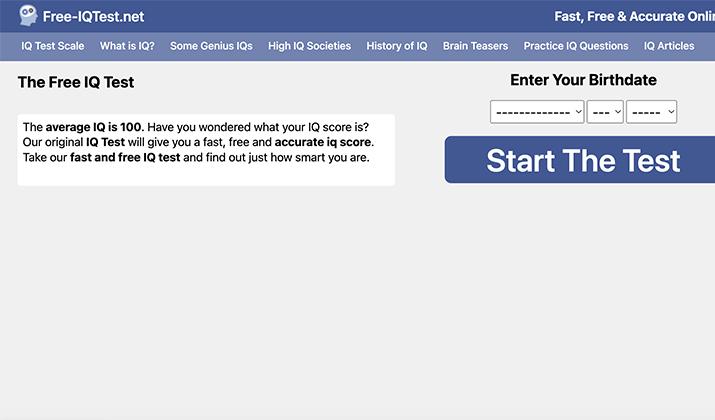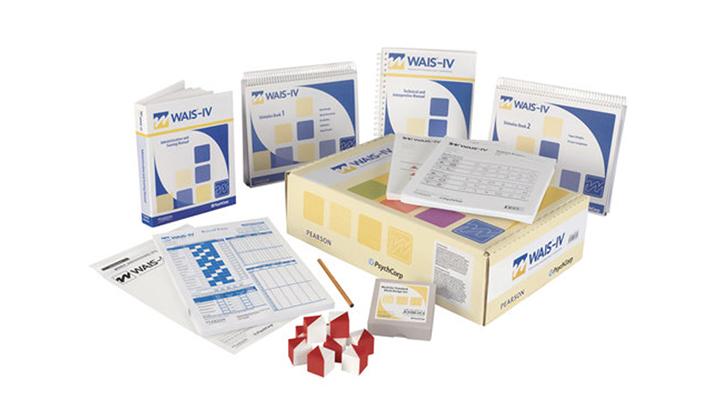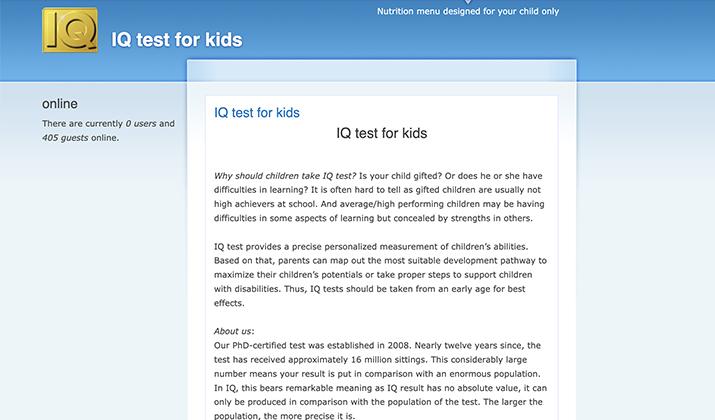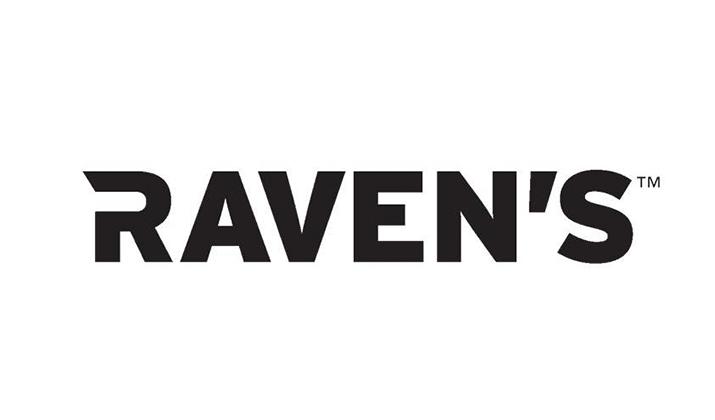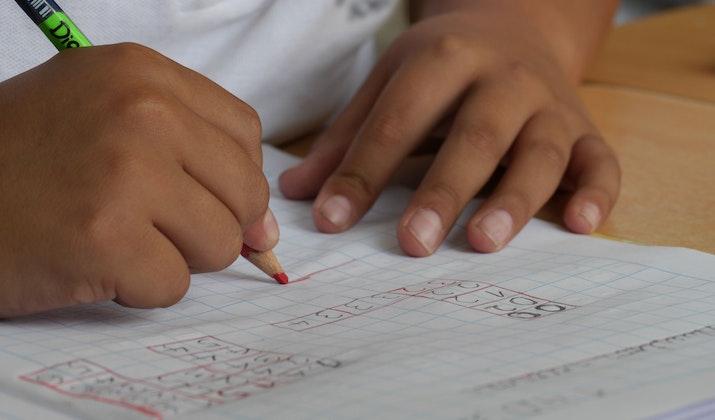IQ tests for 12-year-olds are important as they give you valuable insight into the range of their cognitive abilities. By being able to correctly assess their skills, you can identify the areas they excel in and where they may need assistance.
This is especially helpful for modern educators as it helps them come up with a personalized curriculum for each child. Mixing struggling children with the gifted ones usually ends badly for the former, as they get overshadowed by the rest.
In this article, we will break down the Best IQ Tests For 12-year-olds. We will also discuss the factors that you should keep in mind when choosing them.
The article will also talk about handy tips for taking an IQ test so you can get the most accurate results.
Factors To Consider When Choosing an IQ Test
Photo by Katerina Holmes/Pexels
There are countless online and standardized IQ tests available and not all of them are suited for a 12-year-old. Here are the factors to keep in mind when making the right choice.
Test Content
Think about the knowledge and abilities the test measures. Some IQ tests concentrate on particular skills like linguistics, mathematical, or spatial aptitudes. Pick one that fits your child’s interests and strengths rather than subjecting them to overly general IQ tests that may not narrow down their core skills.
Test Reliability
Not all IQ tests offer a reliable benchmark for skills and abilities. You need to find IQ assessments with a high degree of reliability. The best kinds of IQ tests are the ones that test the child’s IQ accurately over a long period of time. The short-term ones may not capture everything that’s needed.
Validity
An ideal IQ test should be validated for usage with 12-year-olds, not younger or older. The brain develops differently for different age groups. So subjecting a 12-year-old to a test designed for a 5-year-old or 15-year-old may not capture their abilities well.
Time Constraints
Verify the test’s time restrictions then choose a test that fits your child’s level of comfort. 12-year-olds may start feeling too much pressure if they’re subjected to an IQ test with a timer. That level of anxiety may affect their mental capacity to answer the questions to the best of their abilities.
Also Read: Best Funny Classroom Games
Administration
You need to decide whether you need the test taken online or if a psychologist must supervise it. Online assessments are convenient because they can be done anywhere and at any time, but they may not be specifically accurate. Supervised IQ tests might yield more reliable results but may be hard to set up.
Norms and Standards
Make sure the IQ test is based on current benchmarks and requirements. This guarantees that the scores of your child are evaluated in relation to their peers today. So avoid outdated IQ tests that were designed for children in the 80s who didn’t have access to the same level of technology modern kids have.
Cost
Finally, think about the cost of the IQ test. Some are free while some require you to pay. The differences between the two are many and it’s natural to assume that premium IQ tests are better. Ultimately, think of what you want to achieve with the test and avoid breaking your bank for it.
Also Read: Best Metaphor Examples For Kids
Free Online IQ Tests for 12-Year-Olds
The following are some of the best free online IQ tests for 12-year-olds.
MentalUP IQ Test
The MentalUP IQ Test was created especially for 12-year-olds. It includes a number of features that make it a popular option among parents, educators, and young learners alike.
You can choose between a Quick IQ test and an Advanced IQ test after entering your age and the results are instant.
Standout features that make the MentalUP IQ Test perfect for 12-year-olds include the following.
- Has a user-friendly interface that’s easy to navigate with minimal distractions and simple instructions that ensure the kid focuses on the questions.
- Contains age-appropriate questions that pay attention to the cognitive development of the children in this age gap. They strike a balance between not being too easy or too hard.
- A wide variety of test categories includes Raven’s Progressive Matrices, Number Series, Visual Memory, and Verbal Analogies, among many others.
- Engaging and fun tests with interactive elements that ensure the children are invested in the tests. This makes the tests look less like an exam and more like a quest they need to complete.
Check Out: Best Free iPad Games For 5-Year Olds
Quick IQ Test
Quick IQ Test is another free online option that measures different aspects of a 12-year-old’s intelligence and personality. The site even displays the average IQ test scores for different countries.
Notable features provided by Quick IQ Test include the following.
- Quick online tests that are hassle-free and perfect for all groups of young children. Most of the tests can be completed in about 15 minutes.
- Age-appropriate tests that take into account the level of mental development common among 12-year-olds.
- A wide variety of tests that range from Verbal Aptitude, Logical Thinking, and Spatial Reasoning, all geared towards creating all-around thinkers.
- Instant results are displayed the moment the child finishes the IQ test. This includes a detailed breakdown that explains how they performed and where to improve.
- An engaging user interface with minimal distractions but the right balance of elements that keep the child focused on the test.
- No registration is required. You simply tap on the “Start IQ Test” button and a 20-minute timer starts.
Explore: Best Personification Examples For Kids
World Wide IQ Test
World Wide IQ Tests offers a number of free self-assessment tests that can have up to 30 questions. But unlike most of the other free options on this list, a majority of the tests don’t have a time limit and the results are instant. You even get a preview of the test before you take it.
Some helpful features offered by the World Wide IQ Test include the following.
- An easily navigable site with a straightforward design suitable for 12-year-olds who want to quickly test themselves on different skills and capabilities.
- Questions and tests that are appropriate for kids around the age of 12. They’re not oversimplified or too complex.
- There’s a diverse range of tests targeted at different levels of comprehension. You can choose to test language skills, mathematical abilities, and decision making, among many others.
- Vast resources for parents and educators that can help them guide the students better in addressing their core weaknesses.
IQ Test Center
One of the best things about IQ Test Center is how it displays all the IQ categories for the different age groups of children. This makes finding what you need much faster. When you tap on “Start Test” you are given options to choose from, all ranging from five years to 13 years.
Here are some of its notable features.
- Reliable scoring methods that provide accurate scores that give a better picture of a child’s level of proficiency.
- A wide range of IQ tests like Culture Fair, Classic Tests, and Progressive Matrices Tests, among many others that give children more options to test themselves.
- Free access to an unlimited number of amazing tests that would otherwise be charged for on most sites.
- It caters to all groups of children aged from five years all the way to 13 years.
Check Out: Best Alliteration Examples For Kids
Free-IQTest.Net
The first thing you see when you open Free-IQTest is an option to enter your birthdate. The site uses that information to provide all possible IQ tests that are appropriate to the age you just entered.
Further down, you’ll see some of the biggest publications and journals that support IQ tests which proves how important a site like this is to educators and parents.
Some features of Free-IQTest.Net worth mentioning include the following.
- Comprehensive analysis of the test results to give parents and educators a clear image of the strengths and weaknesses of the test taker.
- Multiple test options for 12-year-olds that range from Standard IQ tests to Verbal and Visual tests.
- Free and accessible to children from all over the world. All the test takers need is to have access to a stable internet connection.
- Instant results with quick turnaround times. This allows the test taker to get immediate feedback, giving them a sense of accomplishment.
Also Read: Best Learning & Education Laptops For 4-10 Year Olds
Standardized IQ Tests for 12-Year-Olds
Standardized IQ tests are the types that are given to a large group of people at different ages then computing the results and using that as the baseline for other tests.
Most of the standardized tests are certified and conducted by verified institutions. The following are some of the most notable.
Wechsler Adult Intelligence Scale – Fourth Edition (WAIS-LV)
Source: Pearsons Assessments
The fourth edition of the Wechsler Adult Intelligence Scale (WAIS-IV) is still a useful tool for evaluating cognitive ability. Although it was created with adults in mind, it can be adapted for 12-year-olds.
The WAIS-IV entails a wide range of tests that were created by Dr. Wechsler in 1955. These evolved with time to include a series of tests that range from solving puzzles to processing information faster and handling vocabulary challenges.
Some benefits of the WAIS-IV include the following.
- The test is well established with very good test-retest reliability. It has one of the best-documented accuracy levels of most IQ tests.
- Measures the most current IQ state of the test taker.
- It has even been used for medical purposes in taking stock of a person’s mental state after a severe traumatic brain injury.
IQ Test for Kids
This is another standardized test for kids that was established in 2008 by a series of PhD-certified tests. It has been taken 16 million times since its inception and that gives it a wide range of data that makes it more accurate than most of the other IQ tests.
The validity of the tests so far stands at an average of 99.14% which is as close to accuracy as you will get in the world of IQ testing.
The tests involve the use of shapes, numbers, language, and others. They can be conducted online.
Also Read: Best Math Apps For Kindergarten
Mensa Tests for Kids
Mensa Tests for Kids is one of the most globally recognized standardized IQ tests and it involves a lot of supervision compared to the rest. You first need to qualify for Mensa tests since not just anybody can take them.
There are two ways of qualifying. You can either take the test administered by Mensa or send in a qualifying test score from any other test approved by Mensa.
So you have to ensure the test you’re about to take is approved and this can be done by checking with the nearest Mensa office or sending an email for further clarification.
The Mensa IQ test requires you to enter your age with a test timer set for 24 minutes once you provide the necessary info.
Also Read: Best Ducksters Science Games
Raven’s Colored Progressive Matrices
Source: JV Africa Group
Raven’s Colored Progressive Matrices is a standardized IQ test that was developed by John C. Raven in the mid-20th century. It uses monochromatic designs, matrices, and grids with one pattern missing.
The test takers are then supposed to find the missing piece from a set of confusing options that look almost similar.
What makes this an appealing test for kids is the use of colored formats in the modern versions as this keeps children engaged throughout the assessment. But it’s recommended that you combine this test with others because Raven mostly focuses on cognitive and visual areas.
Check Out: Best Games Like Kahoot & Quizizz
Tips for Taking an IQ Test
To get the best out of an IQ test, standardized or free, you need to follow these tips.
Preparing for the Test
Photo by Pixabay/Pexels
The first thing you need to do is mentally prepare for the IQ test. The level of questions usually varies from one test to another, but overall, consider doing the following.
- Practice Puzzles and Riddles: Encourage your youngster to partake in mental stimulation activities like figuring out puzzles and riddles. These can aid in enhancing their capacity for logical reasoning and problem-solving, both of which are frequently evaluated in IQ tests.
- Familiarize with Test Types: The formats and contents of various IQ tests vary. For example, the Mensa test is a little more complex compared to the free online ones. Familiarizing your youngster with these tests may help them feel more at ease during the actual assessment.
- Stress-Free Environment: Before the test, make sure your child is well-rested and at ease. They must have a good night’s sleep, eat a healthy meal, and stay out of stressful situations.
Ensuring a Suitable Environment
Photo by Karolina Grabowska/Pexels
The environment matters a lot as far as concentration is concerned. Try the following tips.
- Quiet and Distraction-Free: Limit electronic gadgets like tablets and the TV. You also need to find a cool and quiet place for your child to use to revise for the possible questions they may get. A calm environment is the key to focusing on the test at hand.
- Comfortable Seating: The chair they use is also very important. It should have lumbar support and be adjustable so they can reach the study table without leaning forward too much. The more comfortable they are, the more focused they will be.
- Timing: The child needs to understand the importance of keeping time without feeling too much pressure. You can use mock questions and time them to see how they may perform when the real test comes around.
Also Read: Neal.fun Alternatives, History
Interpreting the Results
Photo by Lukas/Pexels
The final tip is knowing how to interpret the results. Remember, the focus is finding weaknesses and strengths, it’s not about failing or passing. Consider the following.
- Understanding the Score: The mean score for most IQ tests is 100. Anything above this indicates above-average intelligence and the scores below indicate the child may need more help. These scores do not represent the entire abilities of the child.
- Discuss the Results Positively: Approach the outcome of the results in a positive and supportive attitude that doesn’t make the child feel they’re lacking something. Make it clear that the tests are just to identify the areas where they may need more help. Praise them where they excel.
- Seek Professional Guidance: Always seek the guidance of a professional who’s trained to interpret the IQ test results better. This could be a psychologist or an educational specialist.
Also Read: Best Games Like Blooket
Conclusion
The main role of IQ tests is to determine the level of a child’s overall cognitive abilities so that the necessary improvements can be made.
By identifying their strengths and weaknesses, a personalized study plan can be created for them.
This is why it’s important to consider all factors when choosing the right IQ test for your child. Always go for tests that offer varied testing options to better capture the all-around intelligence of the test taker.

Scott L. Macarthur is a marketing consultant and an online author. He is mostly engaged in providing his expertise to startups and SMBs. He is also an author on TheNextWeb.

